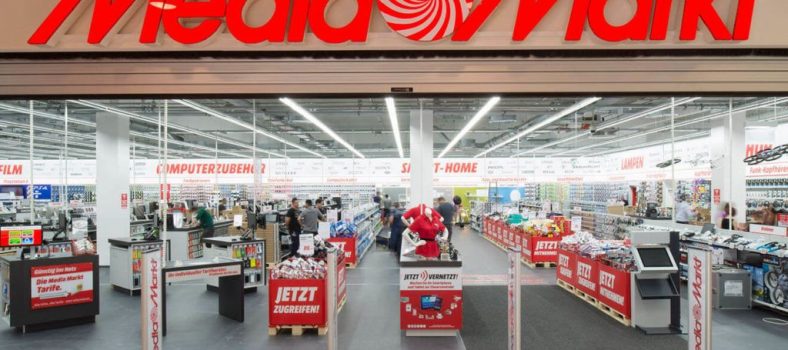 By Patrick Diab
By Patrick Diab
The hospitality industry is undergoing significant changes as consumer tastes evolve, and savvy competitors enter the market with creative and digital ways to serve customers. Statistics from 2018 estimate that accommodation and food services generate over $110 billion in revenue per year for the Canadian economy1. Recent forecasts predict that food services alone will total $75 billion in sales in 20192,3. At the same time, innovative players like online events and travel agencies, food delivery services and apartment-sharing apps are putting pressure on businesses to modernize their service offerings and payment systems.
To remain competitive, it is important that hospitality businesses maintain the latest payment solutions as essential components of their operations. Regardless of the services or products they offer, when equipped with the right solutions these merchants can accurately track their sales and expenses and make informed decisions to help boost profitability. More importantly, an agile solution can help close critical technology gaps that prevent a company from turning every visitor into a paying customer. Fortunately, there are a variety of options available designed to meet the needs of hospitality management.
Terminals that accept the latest methods
According to our 2019 MonerisMetrics data, more than half of all card-present transactions processed in the first quarter were contactless. Hospitality merchants may be accustomed to tap credit cards, but digital wallets and other smart device payments are becoming popular with diners, shoppers and tourists who want a frictionless experience without rummaging through their wallets. The good news is that many point of sale (POS) terminals that support tap cards can also support newer contactless technology simply by activating it through the payment processor.
 Business owners should keep in mind that 95 per cent Canadian adults have at least one major credit card. This means that nearly all Canadians rely on plastic to pay, whether online or in-store, so long as the business is equipped to accept them. You can keep your business open to the majority of guests by maintaining a functioning payment terminal and online payment page that are configured to accept a wide range of card brands.
Business owners should keep in mind that 95 per cent Canadian adults have at least one major credit card. This means that nearly all Canadians rely on plastic to pay, whether online or in-store, so long as the business is equipped to accept them. You can keep your business open to the majority of guests by maintaining a functioning payment terminal and online payment page that are configured to accept a wide range of card brands.
POS solutions that simplify operations
The ability to serve customers quickly and attentively is key to the success of any hospitality business, so it can be easy to think that success depends on the speed of your staff. However, it is worth stepping back to consider your POS system overall and the staff training required to navigate it. Complexities in your POS set-up can cause slowdowns during your busiest hours.
iPad POS solutions are a great way to start your small-to-medium-sized business with hardware and software that are streamlined to simplify the checkout process. For larger businesses, an integrated POS system with robust front- and back-end tools can help manage bookings, inventory, scaling, central product catalogues, pricing and promotions.
Don’t underestimate the value of having a built-in reporting feature within your POS system. These reports can present insights, such as sales volumes and labour expenditures and inform your decisions about expenses, profitability, products and employees. Take the guesswork out of staffing and product changes, and make smarter, more effective business decisions overall.
Another way to keep operations running smoothly is by simplifying the tools that your staff use when serving guests, accepting payments and reconciling bills at the end of the night. POS systems that offer the best user experience and operate on the latest software will allow your team members to navigate intuitively and quickly, even during peak hours.
B2B transactions that keep vendors happy
Payment solutions are not just for your customers; they are for your vendors as well. Whether you work with vendors for food supply, retail items or outsourced client services, it is important to have a business-to-business (B2B) payment solution that is secure and easily manageable. Like customers, vendors can benefit from immediate payment methods that are traceable and convenient. The risky days of writing large-sum cheques and money orders will eventually phase out as the world of B2B payments catches up with real-time payments technology, which has already started.
If you haven’t thought about modernizing your B2B transactions, it is not too late to start. Many payment processors that offer consumer-facing solutions also service B2B payments with products such as ePayments and electronic fund transfers (EFTs). Some come with bookkeeping features and transactions updates to help you better manage payment flows in and out of your business. B2B solutions with such advanced financial tracking features in place will give you a clearer look at your funds, and what purchases you can make for next month while staying within your means.
As more innovative payment options come to the market, businesses that stay ahead of the trend can increase their resilience against market ebbs and flows and the wave of new competitors that aim to redefine the customer experience (CX). When leveraged efficiently, a reliable and versatile POS system can help improve the CX by giving them the option to pay how they want. It can help business owners refine their overall staff training and vendor operations as well, and ensure they are agile enough for today’s fast-paced world of commerce.
Patrick Diab, vice president, product and client solutions oversees the ongoing evolution of Moneris’ product portfolio. Patrick joined Moneris in November 2002 and has 17 years of experience in the payments industry. He has also held roles in technology, product and client integration and has sat on McMaster University’s Ecommerce Fraud Committee.




